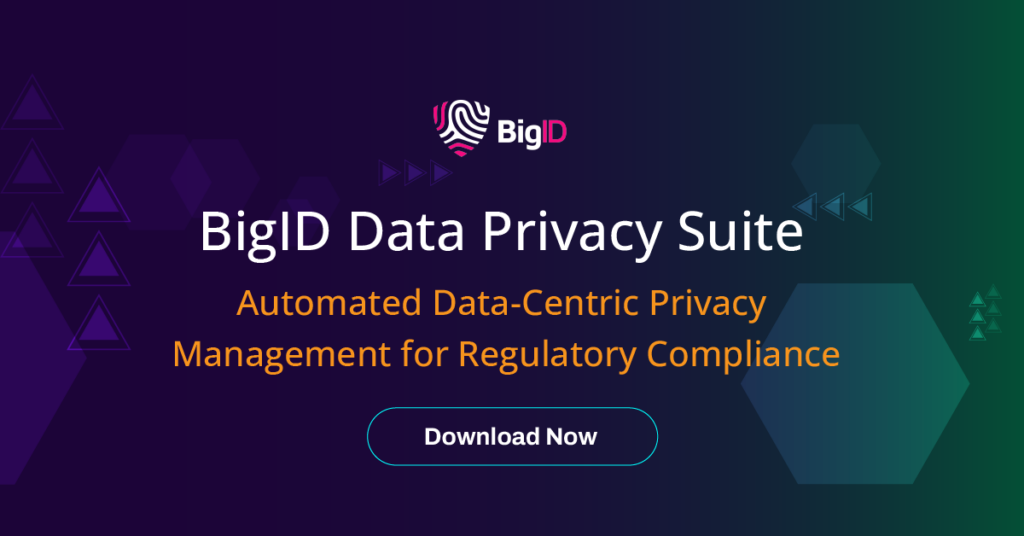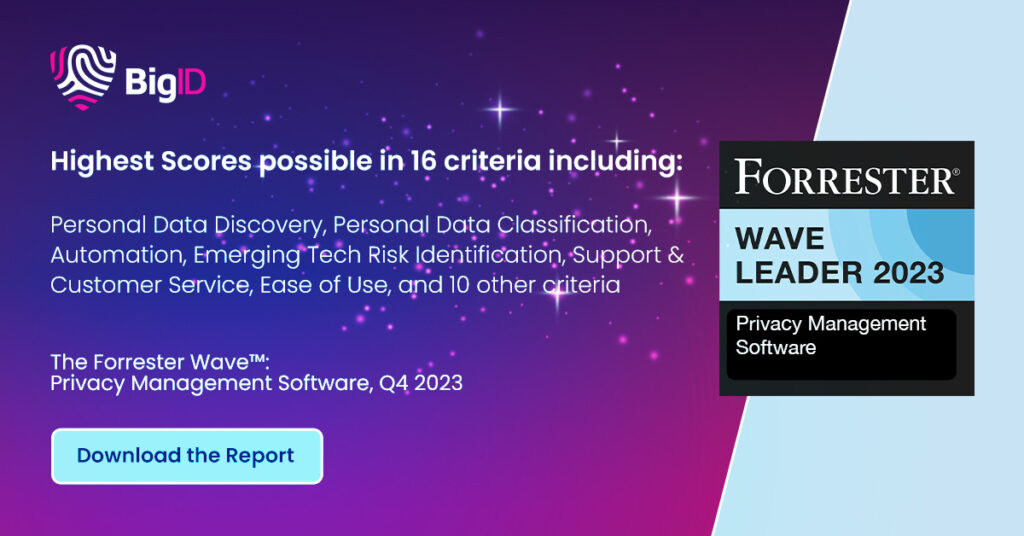As data privacy evolves with new AI developments and regulatory changes, every privacy professional must constantly adapt. Here are three strategies your organization can adopt for more straightforward privacy compliance and protection.
1. Identity-Aware Privacy, Security, and Compliance
Without identity context, it’s impossible to identify what data belongs to what individual. Identity-aware privacy and protection are essential for compliance, with benefits that include:
- Improved Data Accuracy: Most data discovery technologies rely exclusively on regular expressions (Regex) to identify personal and sensitive data like credit cards and social security numbers. However, certain technologies could easily perceive an SSN as similar to a phone number with hyphens. Identity correlation is necessary to improve accuracy and compliance when directly connecting data like a social security number to a customer or employee.
- Mapped Identities to Sensitivity Data: Personally Identifiable Information (PII) such as social security numbers (SSN), passport numbers, driver’s licenses, Tax IDs, and residential addresses are all considered sensitive data. But the reality is that most technologies can’t identify whether a file or record contains this level of information.
- Streamlined Breach Response: It’s safe to assume your organization could experience a data breach. Nearly all privacy legislation requires a breach response plan to respond to those affected within 72 hours— so you need to know which customers or employees are impacted by the breach to notify them of the incident, which requires, you guessed it, the identity of the data.
- Accelerated Data Rights Management: Data privacy regulations have provided consumers with several rights related to their data. This includes the right to know what data is stored, the right to access the data, and the right to erase or modify the data. For an organization to fulfill these rights, it must know what and where an individual’s data resides.
- Adapted Policies for Data Residency and Sovereignty: An individual’s residency is crucial to several data privacy and protection laws. For instance, GDPR depends on an individual’s residency in the EU, meaning if you process data from that region, it needs to meet local legislation standards. Organizations need to know which systems host resident data, which means you need to know the identity of that data.
BigID is the first company with an identity intelligence patent that covers the discovery, classification, and correlation of unique and contextual information in structured, semi-structured, and unstructured data and the automatic correlation of personal data to a natural person or privacy data subject. This enables organizations to automate data privacy to drive policies, streamline breach responses, assess risk with assessments, and fulfill data access requests and deletions.
2. Data-Driven Privacy Automation
We’ve come a long way since May 2018, when GDPR was first introduced; even though we’ve made strides in automation, many organizations still struggle with manual processes of identifying all users’ PI and PII spanning multiple data sources and environments. Simply checking a box isn’t enough to achieve compliance; manual processes are inefficient and prone to error. Organizations risk audits and fines that could damage their reputation and bottom line without privacy and protection automation.
Privacy teams need skills and solutions for IT, data security, privacy engineering, and data management. From the start, data privacy automation has been the heart of BigID. See why BigID is a leader in Forrester’s Wave for Privacy Management Software in this exclusive report (get your free download here).
BigID is a strategic partner for customers, for and beyond privacy” and “offers some of the best options for automated data discovery, classification, and data flow maps, as well as a range of controls (such as data retention, deletion, and de-identification) that users can provision and enforce through the platform. – Forrester

3. Managing Privacy Risk in the Age of AI
AI can be either a strategic enabler or an additional threat vector (often both) that increases risk and potentially violates privacy regulations. Organizations have to confront the challenges, risks, and the need to deploy AI safely and responsibly. In order to mitigate AI risk, in Generative AI (GenAI) & large language models (LLMs), it’s vital to train models only on data that is fit for purpose – to avoid any personal, sensitive, or regulated data that potentially runs the risk of data breaches, leaks, regulatory fines, and consumer mistrust.
BigID enables organizations to automatically manage privacy risk by context as it relates to specific regulations to AI for the purpose of use – apply AI policies, understand their regulated data, and put controls around it to mitigate privacy risks in the age of AI. Leverage solutions like BigID that take a defense-in-depth approach to automating manual processes, improving accuracy and actionability, and applying AI & ML to cut through the noise, improve risk management, and enable a robust data security strategy.
BigID helps organizations of all sizes address data privacy holistically with a cohesive approach to managing privacy risk. So start saving time, automating manual processes, and executing your privacy program during this data privacy week. Get a 1:1 demo with our privacy experts to see BigID in action.


